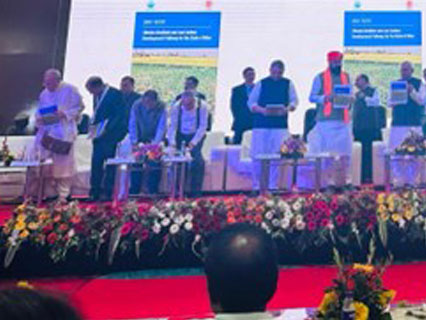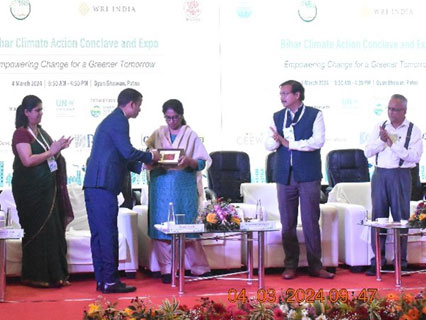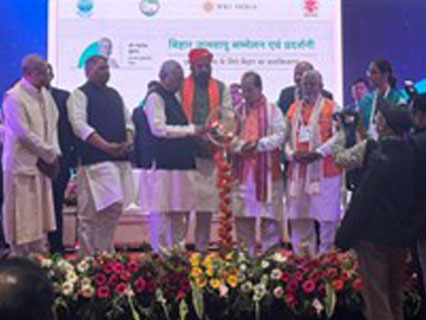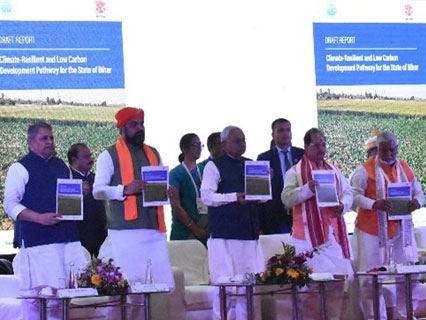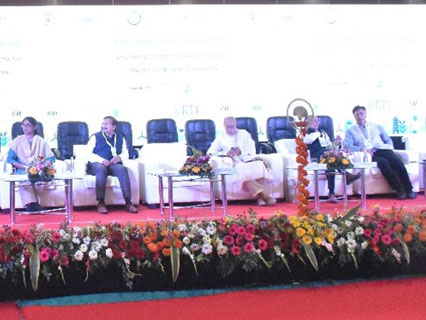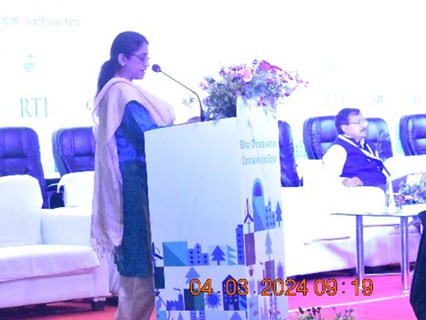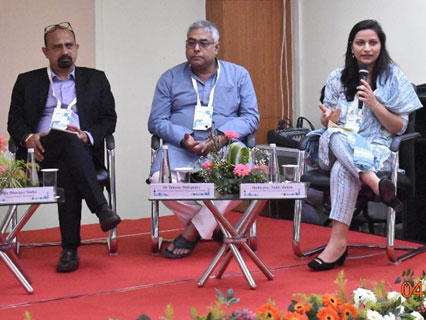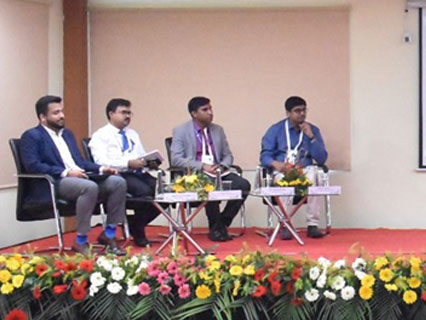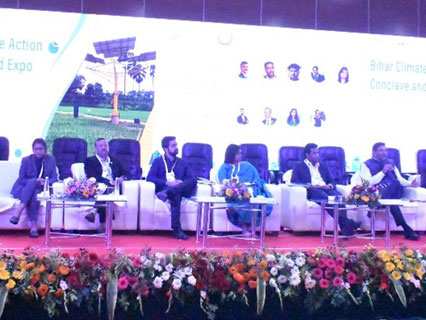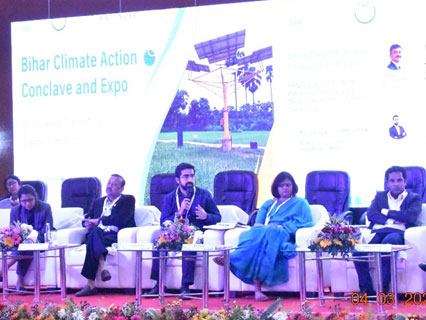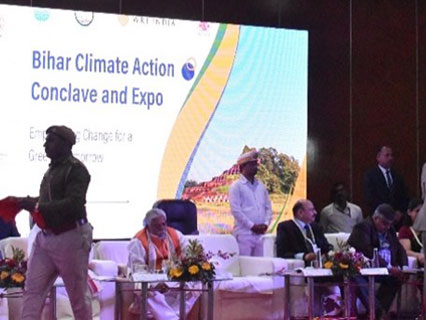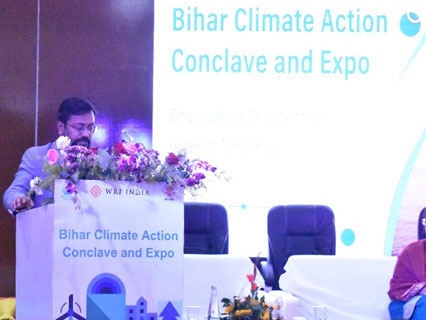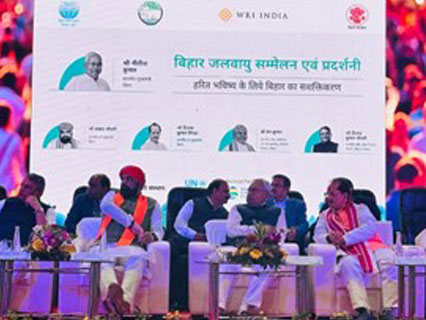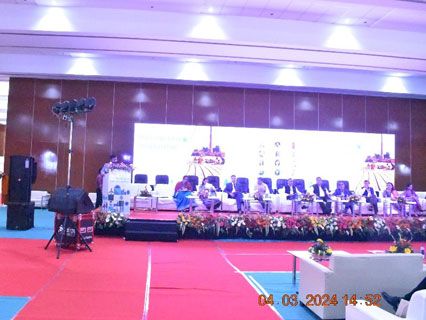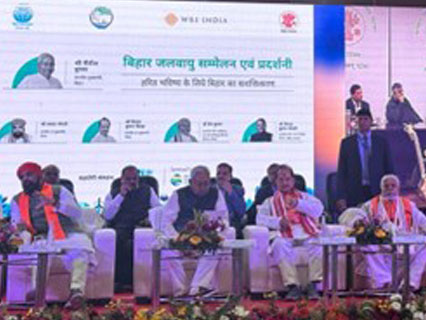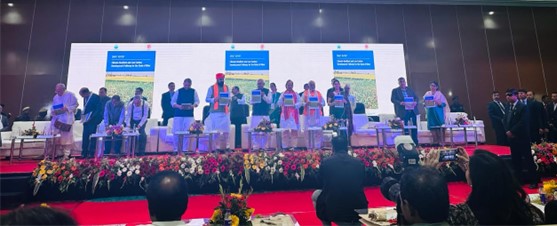

The Bihar Climate Action Summit, a collaborative effort between Shakti Sustainable Energy Foundation, UN Environment Programme (UNEP), WRI India, Council on Energy, Environment and Water (CEEW), and Confederation of Indian Industry (CII) convened under the theme ‘Empowering Change for a Greener Tomorrow.’ The initiative received support from various deep-dive partners, including Research Triangle Institute (RTI) for Energy, Development Alternatives (DA) for Industry, and ICLEI for Waste Management on March 4, 2024, in Patna, Bihar. The Conclave aimed to gather experts, stakeholders, policymakers, and practitioners to discuss climate strategies tailored to Bihar’s context.
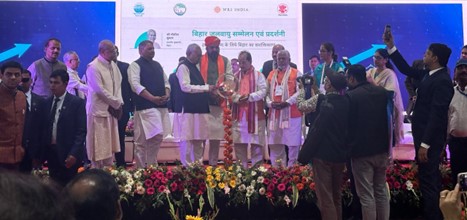
Chief Minister of Bihar, Sri Nitish Kumar inaugurated the summit, unveiling the draft of the ‘Climate Resilient and Low Carbon Development Pathway for Bihar,’ a pioneering document in India. Additionally, he launched 26 projects valued at ₹108.33 crore from the Department of Environment, Forest, and Climate Change (DoEFCC), notably including India and Asia’s premier dolphin research center in Patna. Furthermore, Shri Nitish Kumar introduced an integrated dashboard for air quality monitoring across all 543 block offices in the State.
The summit also marked the inauguration of Bihar State Pollution Control Board’s (BSPCB) regional offices in Purnia and Bhagalpur, along with the release of a draft Bihar Declaration on Climate Action. This declaration aims to engage all stakeholders in implementing scientifically backed climate change mitigation and adaptation strategies in the State.
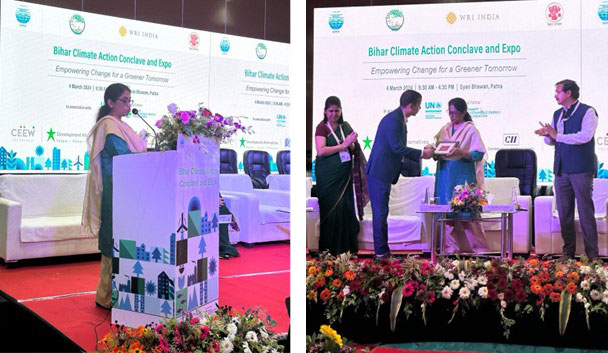
Vatsala Joseph, Interim CEO, Shakti, in a Plenary Session at the event, said “It is a privilege to be part of ‘Bihar Climate Action Conclave’ and I wish to congratulate the State of Bihar for having demonstrated exemplary leadership by becoming a pioneering Indian state in launching its Climate Resilient and Low-Carbon Development Pathways’ to achieve climate neutrality by 2070 while promoting development and economic growth. We sincerely appreciate the United Nations Environment Programme (UNEP) for partnering in this initiative. We are thankful to the World Resource Institute of India (WRI), Council on Energy, Environment and Water (CEEW), Development Alternatives (DA), Confederation of Indian Industry (CII), Research Triangle Institute (RTI), ICLEI South Asia, and Asian Development Research Institute (ADRI) for their collaboration and efforts in this engagement.”
The Bihar Climate Action Summit represents a significant stride towards a resilient and sustainable future for the state. Through collaborative commitment to climate-resilient and low-carbon development, this initiative aims to safeguard Bihar’s ecosystem, bolster economic resilience, and prioritise the well-being of its citizens. Key objectives of the summit included facilitating discussions on innovative climate finance mechanisms, catalysing Bihar’s energy transition through public-private partnerships, fostering collaborative climate action, and exploring multi-stakeholder partnerships to operationalise low-carbon pathways.
Shakti participated in several panel discussions to discuss Bihar’s Climate Development:
Understanding Risk and Resilience
Nidhi Madan, Associate Director, Climate Policy, Shakti, moderated a panel discussion on ‘Understanding Risk and Resilience’ where she said “Every state confronts diverse climate risks requiring customised local solutions, spanning economic challenges such as heightened healthcare expenses and reduced worker efficiency. While vulnerable communities hold invaluable indigenous knowledge, scaling up these practices is essential for effective risk mitigation. This calls for targeted communication and capacity-building support to facilitate intervention planning and enhance resilience.”

Pathways to a Low Carbon Development: Innovation and Transitions
Siddharth Arora, Associate Director, Clean Power, Shakti, said “Recent estimates suggest that the State of Bihar boasts a renewable energy potential of approximately 12-16 GW. Notably, advancements in technology, including higher hub heights and larger rotor diameters, indicate promising prospects for wind energy in the region. Further, districts such as Rohtas, Jamui, and Nawada exhibit substantial potential for Pumped Storage projects. These projects not only hold promise for Bihar’s energy landscape but also can fulfill the Round-the-Clock (RTC) power requirements of DISCOMs beyond the state borders. Bihar should position itself as an exporter rather than an importer of renewable energy, underscoring the opportunity for the state to become a significant player in the renewable energy market.”

Financing Climate Future: Opportunities, Challenges, Innovation and Private Finance
Shubhashis Dey, Director, Climate Finance, Climate Policy, Shakti moderated this session where he said “The Bihar Declaration on Climate Action reaffirms Bihar’s commitment to fostering an integrated approach to inclusive, sustainable, and climate-resilient growth and development by prioritising climate mitigation and adaptation in the state.
However, pursuit of Climate resilience and Climate neutrality is not merely a declaration; it is a commitment to safeguarding our planet for the present and future generations. It is a recognition that economic growth and environmental responsibility can go hand in hand. To navigate this transition, our focus must be on the people – their jobs, their skills, and their socioeconomic mobility.”


